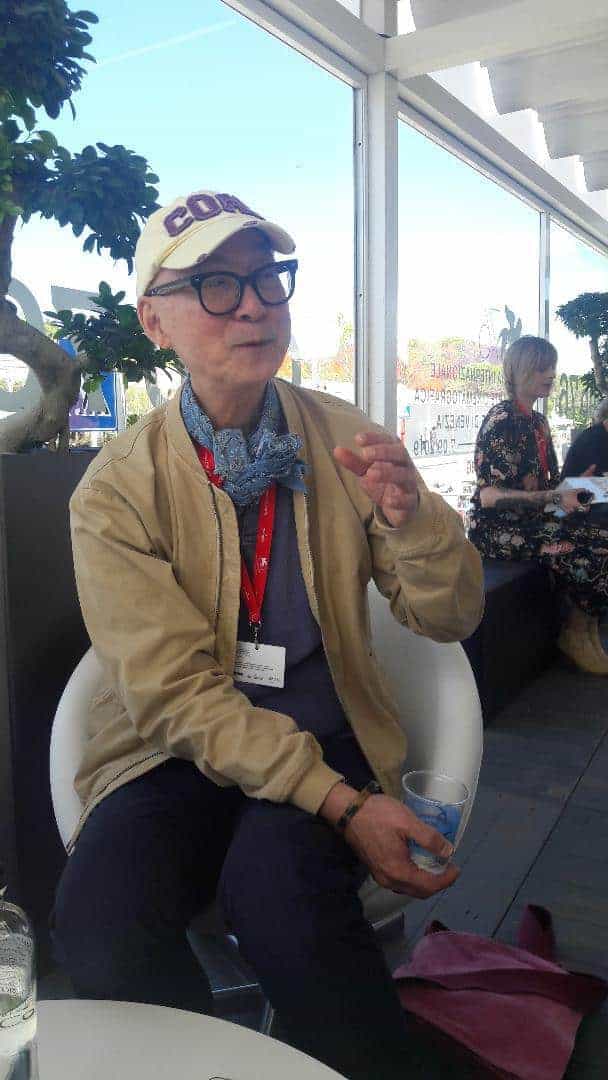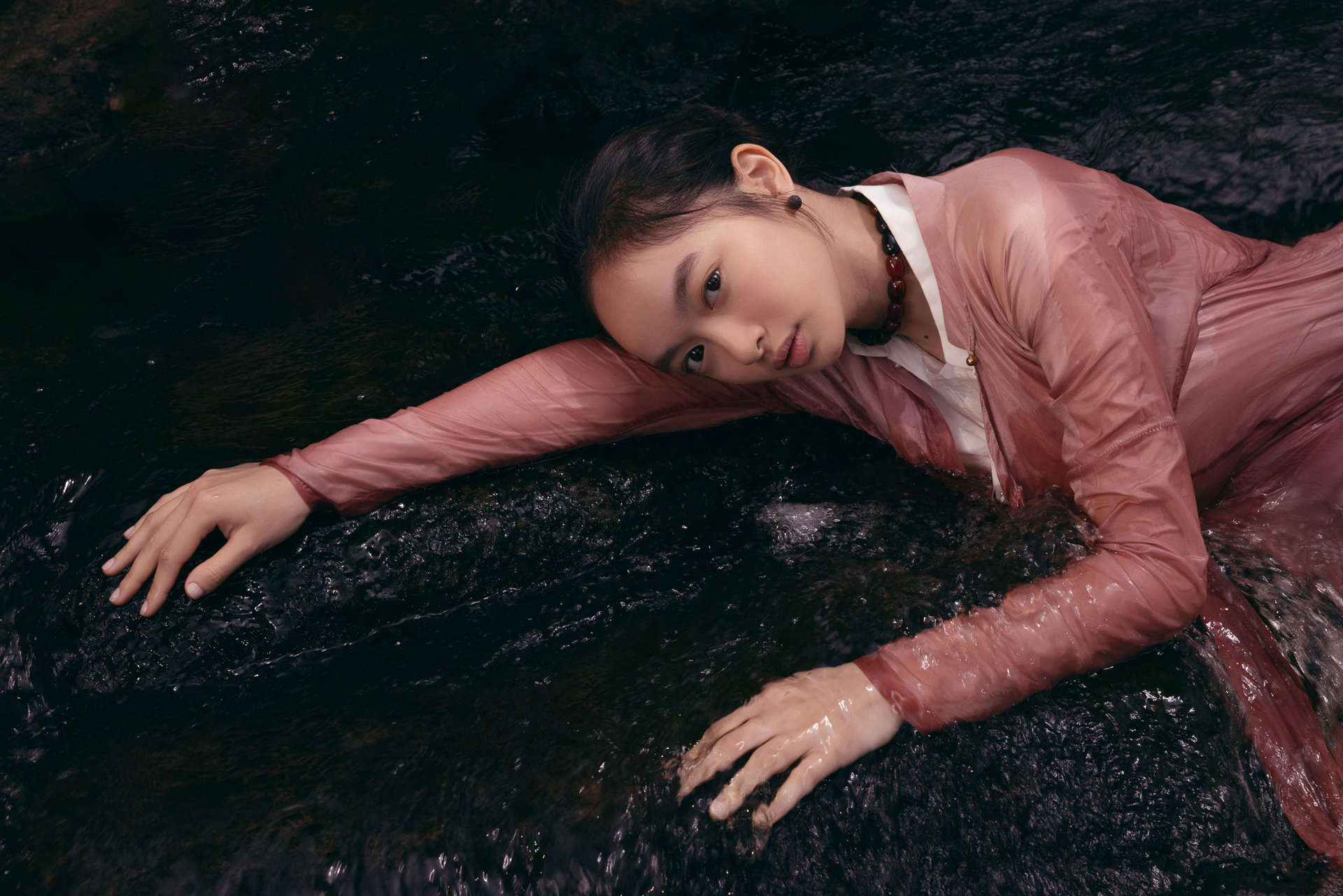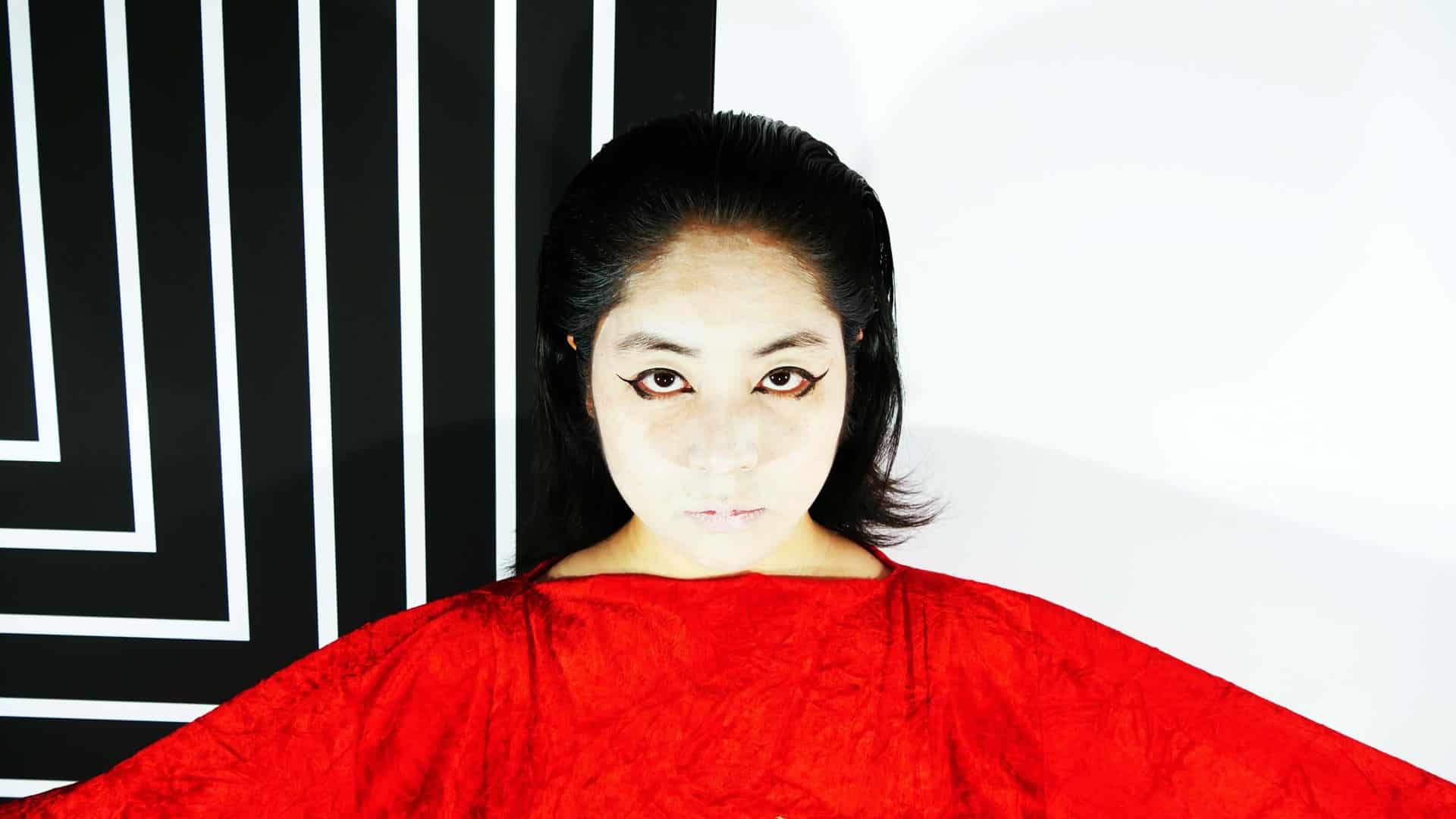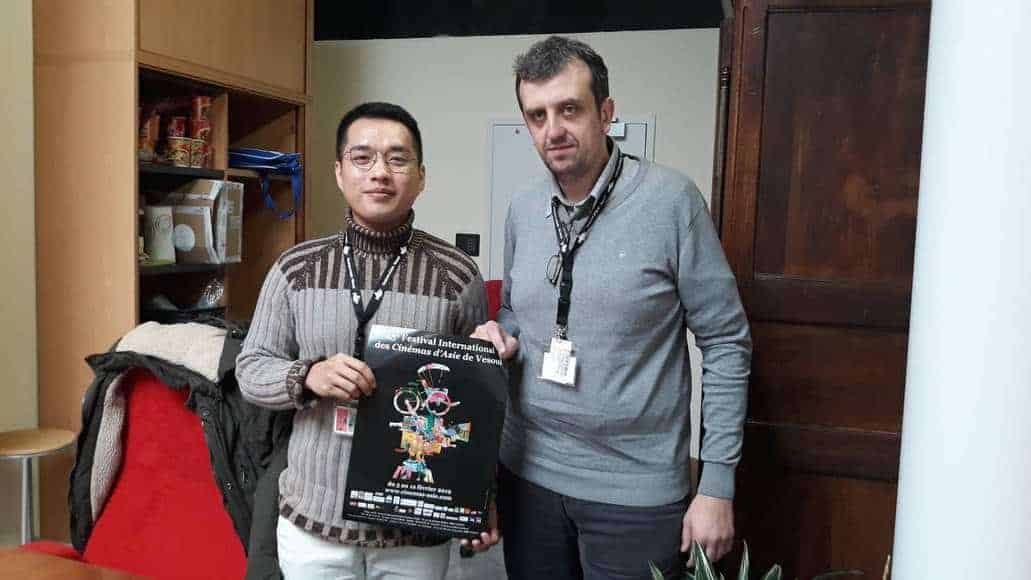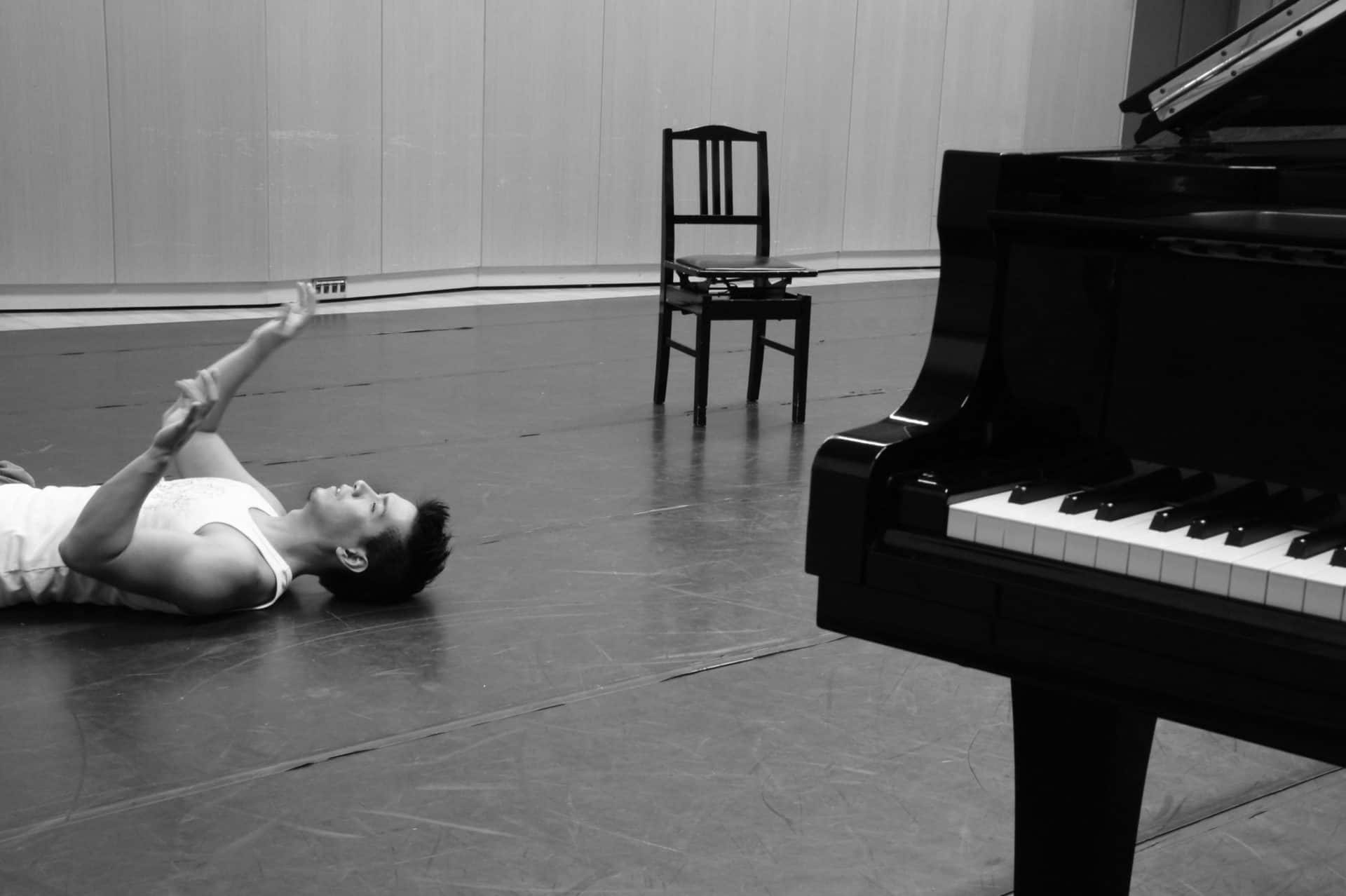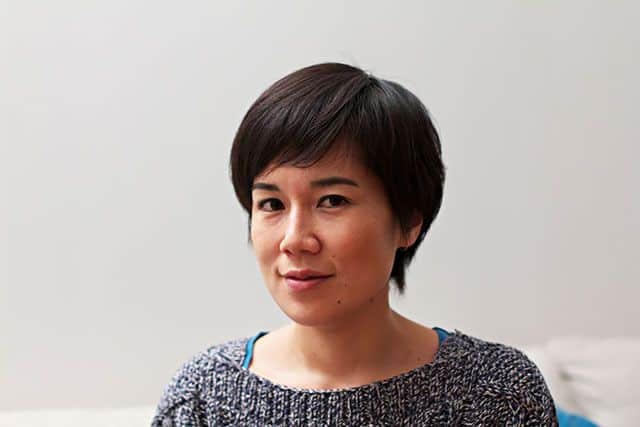The Hong Kong- Taiwanese director Yonfan was awarded the Best Script Award for his first animation feature-length film “N°7 Cherry Lane” at the 76th edition of the Venice International Film Festival, a complex love triangle story set at the backdrop of the Hong Kong protests in 1967. Highly erotic and brave in exploring the mechanisms of love relationships, the film is loaded with film-, literature and art references and never short of surprises.
We spoke to Yonfan after the first press screening of his film at the Venice International Film Festival in an emotionally laden interview that hid a surprise or two.
“N°7 Cherry Lane” screened at Venice Film Festival 2019
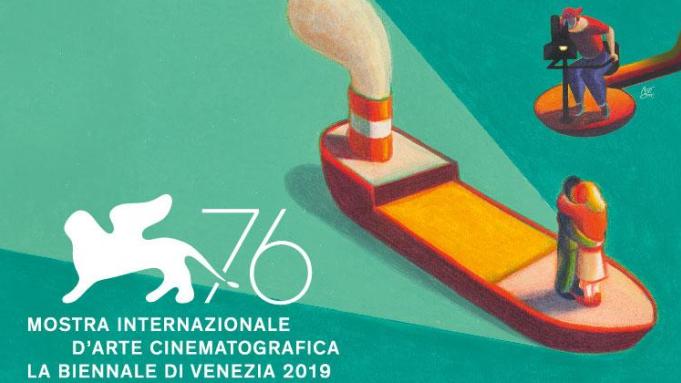
Was making a feature-length animation your dream come true?
Yes, because doing an animation is completely different from the real-life film where you have an entourage with the stars and the crew. The animation making process is very quiet. Everybody is concentrated on the drawing and it feels like meditation. For 5 years, beginning with the script, the design and all related to it, it was a wonderful experience. We saw things slowly materializing.
You opted for private financing yet again.
I've always been adventurous, and I will always be independent. First of all, I wanted to be an independent producer and filmmaker, and therefore I never had a boss to tell me what to do. I have no company that required me to add or take away something to please the audience. So, “N°7 Cherry Lane” is not a very pleasing film to many people. I made a film, and if people enjoy it that's fantastic, and if they don't – it's their problem. Regarding marketing, that's something totally out of my cluster. I invest my own money and if I lose everything, that is my problem.
Was one of the reasons that you wanted to make an animation feature movie related to more freedom in exploring female sexuality?
If you watched all my other movies, then you know that I am famous for making movies with femmes fatales, with leading ladies that are big stars back in my country and who love acting in my movies. I can make the best out of them on the big screen with close-ups and such, but I don't think that I was motivated by such reasons this time. In my other movies, they are really like in the “Colour Blossoms” (2004) which I think is my best. It's all about women's sexuality. But I think that the reason why I wanted to make an animation was of a different nature. Just to clarify it a bit, I don't see animation the way people understand it. It's just a technical term. It is pictures that move, the pictures of French impressionists or pictures of pop-culture and Chinese painting. This is what I was aiming at – making a motion picture.

You've even casted your fellow-filmmakers to vocalize the roles of some of the film's key protagonists: Fruit Chan, Ann Hui, Tian Zhuang-Zhuang & Stephen Fung among others.
This movie to me is like a souvenir of 30+ years of filmmaking. I had the pleasure of working together with wonderful friends and stars, and some of them I even made into stars at some point. They voice probably just one sentence or say a “meow” (Fruit Chan is black cat), some have dialogues. These are all my friends who I cherish.
“N° 7 Cherry Lane” is also in a way a catalogue of things that you treasure. It is full of film-, art-, music- and literature references.
I feel very lucky to have lived a fruitful life. I was surrounded by beautiful movies, paintings and books. I pick bits and pieces from everywhere ad make it into a film, which I think shows my appreciation for art. In this movie, I put all the ingredients together. In Chinese cuisine, we have a way of doing this dish – we put everything in it and make something. In the American, or generally Western way, there is a term “Chop sui” which means “everything together”, but it sells in fast-food Chinese restaurants. But in Chinese, there is a special expression to describe that type of dish – “Buddha over the wall”. In other words – the cooked dish smells so good, that the Buddha wants to climb over the wall to taste it. What I am trying to say is that “N°7 Cherry Lane” with all its ingredients is a film that audience either accepts or it doesn't.
The film is also an ode to Hong Kong. In what way does the animation captures the city's spirit differently than a life-like film?
This film gives me much more freedom to express my love for Hong Kong, but it also gives me more time to refine the things I'm doing. If you are doing a real-life picture, you have a budget to keep under control and you have to finish it faster and then later on, you think that some of the scenes or dialogues you probably don't want to keep. There are things you simply can't redo or recreate, because it's costly. But in this movie, I had many years to polish it to the shape I wanted. It's a very luxurious experience. For instance, there is one scene with Madame Simone in which she's smoking a cigarette, leaned onto a lamppost. She is waiting, and then Mr. Harvey walks in. As soon as I saw it, I immediately wanted to have a cat passing by, so I put it there. It's about little delicate things you can alter and improve. The audience doesn't care but you do.
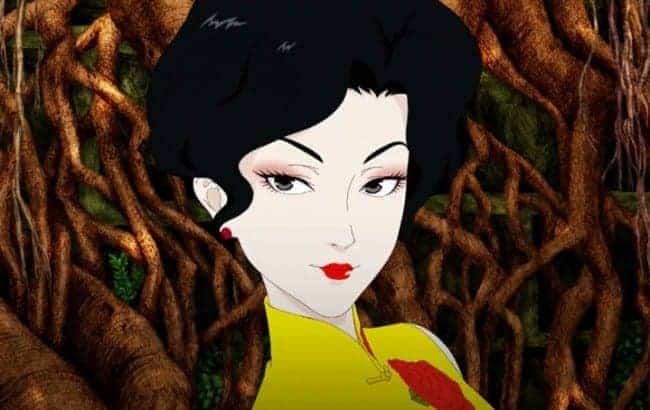
The film's story is set up against the backdrop of Hong Kong's 1967 riots, and now Hong Kong is facing its new challenges.
When I wrote the script, Hong Kong wasn't in this situation. I just wanted a movie about 1967, the period of the riot, because I was there. I was a young man who lived in Hong Kong during the riot. I moved from Taiwan to Hong Kong in 1964, because we had martial law imposed. We didn't have freedom. When I arrived, I smelled the air of freedom, and I don't feel it only metaphorically, but truly. I took a ferryboat across the sea, and the water smelled of freedom. From that moment on, I always had freedom. But, in 1967 there was an enforced rioting coming from the North, from China – an instigation of the cultural revolution. There was bloodshed and the joint forces of Hong Kong police and British troops were trying to calm things down. It was strange because after six months those forces have just disappeared, and Hong Kong returned to its normal life.
Now, it is very strange that 52 years later the same situation happened again. This time, it is an unknown force. We can't say who or what is behind it. This force came to Hong Kong in the name of searching for freedom and human rights, for democracy and started the big demonstrations. All the violence happens under the beautiful words and now everything is upside down. It's very ironic. Four days ago, I was on the flight to Venice. I opened New York Times which dedicated one full page on demonstrations in Hong Kong. There was a half-page with photograph, and the headline was something like “Struggle for Freedom”. I was shocked with the title, and also very hurt. I was thinking: “Because you struggle for freedom, we are losing all freedom.” Now people in Hong Kong can't go out on the street, I can't take public transportation, you have no freedom to talk, wherever you open your mouth you are afraid that people will take you as an enemy. So, that's all in the name of freedom. Isn't that ironic? Here, I have a chance to talk to the press, and that's why I am saying this. Some people advised me against it, because they think that giving such statements will defect the release of your movie in Hong Kong, and people will think of your differently. I said that I didn't care because this is the right place to speak up, and I have to say what's true to my heart and speak for the Hong Kong I love.
What's the situation with the LGTB movement at the moment?
I never think about movements, because sexuality is whatever you choose. All my movies are about different kind of loves. I started this practice long time ago. When I started, there were some movie stars I discovered, and this is probably the biggest personal achievement I did for the Hong Kong cinema. I made a movie called “Bishonen” (1998) with four boys in love. When I shot it, people were literally upset, it flopped at the box office and the audience was scared of watching it. But then, the leading man (Daniel Wu) miraculously became one of the biggest stars and now he's in Hollywood. In those days, there were no movements.
The film is strongly Proustian, with the main protagonist Ziming (Alex Lam) being obviously very influenced by the French novelist.
I think it's much more than Proust, because I am referencing to many books, like the Chinese classic “The Dream of the Red Chamber” or Charlotte Bronte's “Jane Eyre”. Literature gives you imagination. In this movie, I have a lot of narration which maybe gets slightly lost in translation, because it's not written in English language.

You did something very interesting with “N°7 Cherry Lane”. The film was made in 3D, and then turned into 2D. What was the idea behind it?
I am not an expert in animation, and I don't even watch animated films. Let's say that it's not my cup of tea. But I decided to do this film despite of being aware of all risks. It also isn't a film that complies with the taste of the animation movie fans – they can't take it and they don't like it because it doesn't fit into their concept of animation. It's also not a thing that appeals to the artistic filmgoers, because they look down on animations. This film was a risk also in terms that it wasn't cheap. I just take responsibility.
After “N°7 Cherry Lane” was completed at the beginning of the year, the distribution companies that specialized in animation who were initially interested, particularly after seeing the trailer, fell in love with it. Since we didn't have the screeners, they had to watch the film on DCP. So finally, they watched the movie in DCP about a month ago, and to my surprise they didn't even bother to send us a letter saying they were not interested. That's impolite. When our trailer came out, some of the big French sales companies wanted to see the movie, so I organized a screening in Paris for them. They said they loved it, but that it was impossible to sell it.


